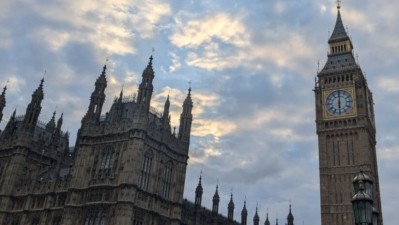Budget ‘last chance for Gov to stop rates bills quadrupling’

CEOs of firms including Fuller’s, Greene King, JD Wetherspoon, Stonegate Group and Young’s Pubs have signed an open letter to the Chancellor, which urged the Government for a lower level of business rates for the sector.
Without action, UKHospitality (UKH), which has spearheaded the letter, estimated the sector would face an additional £914m in rates bills should the current relief ends as planned on 31 March.
The group of 170 business leaders warned should this happen, investment will be curtailed, employment opportunities squandered and there will be higher levels of business failure.
Last chance
In the letter, it tells the Government this Budget is its last chance to stop bills quadrupling for nationwide high streets.
It called for a new, lower, permanent and universal multiplier for the sector and adopted across all nations of the UK, highlighting all firms should benefit from the multiplier, removing the cap that has acted as a disincentive to growth as employers decide opening a second venue is not worth the cost.
In recent weeks, business rates has been an area many voices from the industry have been calling for support on ahead of the Budget on Wednesday 30 October.
In the lead-up to the general election earlier this year, Labour’s manifesto outlined its five-point plan to “revamp” empty and boarded up pubs, including stamping out late payments alongside business rates reformation.
Inaction consequence
On the letter, UKH chief executive Kate Nicholls said: “This 170-strong cohort of business leaders across hospitality shows just how important addressing business rates is at the Budget.
“Inaction will lead to bills quadrupling and more venues shutting their doors for good, which will rob our towns and cities of vital community hubs.
“Further closures will be so detrimental to the Government’s growth agenda and put a dent in our sector’s ability to create places where people want to live, work and invest.
“If we don’t want to lose out on vital investment, job creation and regeneration of our high streets, then the Chancellor needs to act to introduce a lower level of business rates for hospitality at the Budget.
The letter in full:
Dear Chancellor
In recent months, the hospitality sector has become increasingly worried about the onrushing business rates cliff edge that hits the economy on 1 April next year.
This Budget is the last chance to prevent bills quadrupling for high streets across the country.
We are asking you to grasp this opportunity to deliver your manifesto commitment to fix business rates and protect businesses.
As a bricks-and-mortar sector, hospitality is at the core of our high streets and local communities nationwide. It creates places where people want to live, work and invest.
But business rates penalise businesses based in higher cost, central locations. In fact, we pay three times more than we should based on economic activity levels – that is an overpayment of over £2bn.
To put it simply, our tax system discourages people from running high street businesses at a time where we should be encouraging them.
The 75% relief has been helpful in recent years, at least for some businesses. But it disappears 153 days after you deliver your Budget.
We agree with your manifesto that the system needs rebalancing. We propose that your Government introduces a new lower, permanent and universal multiplier for the hospitality sector, to be adopted across all nations of the UK.
All hospitality businesses should benefit from that multiplier, removing the cap that has acted as a disincentive to growth as employers decide that opening a second premises is simply not worth the cost.
We are acutely aware of the fiscal pressures facing your Government. We agree with you that a move to invest in hospitality growth, investment and employment can be delivered in a cost-neutral manner, through rebalancing the sectoral burden.
Without it, investment in our high streets will be curtailed; employment opportunities will be squandered; and ultimately, we will see higher levels of business failure.
Through UKHospitality we set out how we can avoid this cliff edge and push for growth. Now is the time to deliver the fundamental change that you have promised and that will deliver so much.
We look forward to seeing the outcome of the Budget on 30 October.






